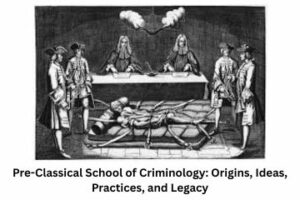Protection against Self Incrimination
Written by: K. RAJEEV REDDY
Introduction
“An accused, until proven guilty is innocent” is the common phrase in criminal law. It means the law presumes the accused as innocent even if he is guilty of the offence but has not been proved yet in a court of law. There have been various cases of media trail where media takes presumption of guilt on part of the accused before the actual trial in court, which leads to chaos in society and we see the accused as the culprit in the first place so, here we as an audience also make presumption as media plays a very crucial role in moulding the mindset of public at large, media trails helps police in further investigation. What if the accused is confessing his/her crime or guilt voluntarily? In this article, we will be dealing with two questions as mentioned above. We will see if confessing before police can be deemed as evidence before the court of law, then we will also analyze various case laws to understand the concept.
Meaning of self-incrimination:
According to Black’s Law Dictionary, a declaration or an act that occurs during an investigation where a person or witness incriminates them either explicitly or implicitly is known as self-incrimination. In simpler words, it is the act of implicating or exposing one’s self to criminal prosecution. Self-incrimination includes exposing oneself or any other person of guilty in crime by making a written or oral statement.
Self-incrimination can be voluntarily or involuntarily, voluntarily in the sense, accused himself, volunteers, to confess the guilt, and involuntarily in the sense that the accused confessed his guilty under police harassment and scrutiny or coercion, fear, or threat by some authority.
Appraisal
Right against self-incrimination is a right inherent in a person, be it a witness to the case or even accused himself. This right provides that a person has a right to keep silent and not answer the questions asked by police during the course of an investigation when such questions are supposed to expose that person to a criminal charge or penalty or forfeiture thereof. However, he has no right to remain silent when such questions do not pose such a threat of prosecution and therefore need to answer truly (as per s. 161 Crpc) to all the questions, as he is legally bound and refusal to answer such questions can initiate prosecution under ss. 202 and 203 IPC.
Therefore, he cannot hide under the garb of self-incrimination to every question asked by the police. Said s.161 is supposed to be a parliamentary gloss over this constitutional right as observed in the case of Nandini Satpati v PL Dani where the apex court at length discussed the scope and extent of Art 20(3) of the Indian Constitution.
Also, compelled testimony under the said article shall always be presumed as a result of fear psychosis, threat, inducement, allurement by police which is abhorrent of a fair trial as the deposition by accused is automatically presumed to be involuntary and under duress by legal fiction so as to save the accused which is a fundamental feature of the adversarial system of trial. For the same reason even, confessions to police are inadmissible and only relevant as an admission under s21 of evidence act and conduct under s. 8 of the same act.
Therefore “Witness against himself” directly relates to self-incrimination and any fact under the conscious mind of the accused or any fact dependant on the personal knowledge of the accused will be inadmissible in a court of law. As a consequence of which even narco tests, BEAP tests, etc are inadmissible provided they are given voluntarily.
However medical examination of the accused like taking blood samples, semen by serologist, his fingerprints and DNA are not facts under his personal knowledge and for the efficient administration of criminal justice and for the needs of an orderly society with a minimal crime such as the taking of samples are held as constitutional by the apex court and here accused cannot invoke self-incrimination. Even medical examination of an internal organ or taking x-rays are held as legally sustainable orders.
The right to silence has various facets which includes:
That the burden is on the State or the prosecution to prove that the accused is guilty and is involved in crime.
till an accused is proved to be guilty, he is presumed to be innocent
That the right of the accused against self-incrimination, namely, the right to be silent and that he cannot be compelled to incriminate himself.
In the Indian context, clause (3) of Article 20 of the Constitution of India guarantees a fundamental right against self -incrimination. Art. 21 grants a further fundamental right to life and liberty and states that the liberty of a person cannot be taken away except by a procedure laid down by the law. Even the Criminal Procedure Code protects this right to silence at the trial under subsection (3) of Section 313 which states that the accused shall not consider himself liable for the punishment by refusing to answer any questions, or by giving false answers.
The right to silence has been considered by the Supreme Court of India in a three-Judge Bench in Nandini Satpati vs. P.L. Dani in which the appellant, a former Chief Minister of Orissa was interrogated with a long list of questions in relation to a case registered against her under the Prevention of Corruption Act, 1947 and under S. 161/165 and 120-B and 109 of The Indian Penal Code, 1860. The Supreme Court followed the earlier English law and the judgment of the American Supreme Court in Miranda and thus ruled that the objective of Article 20(3) is to protect the accused from unnecessary police harassment and even it extends to the police investigation’s stage apart from the trial procedure.
Protection against self-incrimination-
In India, protection has been given to the accused and witnesses against self – incrimination by the Constitution of India under Article 20(2) which states that the accused has the right to remain silent over any question which tends to incriminate himself. It further mentions three components which are as follow-
It is a right to remain silent in the matter of self-confession, it also gives protection against compulsion to be a witness and it also provides protection against such compulsion which results in giving evidence against himself in any form whether by making written or oral statement. On the contrary, if any accused confesses his guilt voluntarily, then in that case, he will not have any such protection. Protection against self-incrimination is based upon the common principle of ‘Nemo teneturse ipsum accusare’ which means that ‘No man is obliged to accuse himself’
Case analysis-
MP Sharma v. Satish Chandra (Jagannadhadas, 1954)
In this case, the court held that the immunity against self-incrimination can be accessed by the accused at both stages i.e. trial and pre-trial. The court remarked that a person whose name is mentioned in FIR as an accused can claim protection under Article 20(3) of the Indian constitution.
Babasaheb v. the State of Maharashtra.
In this case, it was held that an accused who is also a witness in the same police case cannot claim absolute immunity from testifying, however, he can refuse to answer questions that are self-incriminatory.
The exception to article 20(3), where the accused cannot take protection against self-incrimination are-
State of Bombay v. Kathi Kalu oghad.
In this particular case, the Supreme Court held that writing specimen, signature, or thumb impression does not fall into the category of ‘to be a witness’, so the accused or any other person cannot refuse to give these things
Yusufali v. state of Maharashtra.
A tape-recorded statement made by the accused, through made without knowledge of the accused but force or oppression was held to be admissible in evidence; it means it does not attract the protection of Article 20(3) as being a witness against himself.
Conclusion
We have seen above that protection against self-incrimination has been given to the accused with the presumption of no guilt under article 20(3) of the Indian constitution. The provision which provides immunity to the accused aims at zero level police harassment for sake of evidence. No one can be forced to incriminate himself and I feel that the narco analysis test is volatile of article 20(3), hence it is against the fundamental right of privacy.
I remark that by referring above cases, we can say that even immunity against self-incrimination is not absolute; It is subject to certain restrictions as we have seen in the case of State of Bombay v. Kathi Kalu Og had that giving specimen thumb impression does not fall within the ambit of Article 20(3) of Indian constitution as taking thumb impression becomes essential step for further investigation and also giving thumb impression does not require anyone to be a witness’. But I feel there should be harmony between the “right to silence” and “right to obtain evidence”, however, the extraction of information without ‘compulsion’ is the fundamental practice of criminal advocacy.
Previous Posts
Right to form association or unions: Constitutional, legislative and judicial perspective
Right to get water: the recent development and constitutional framework
The International Criminal Court as a Court – An Evaluation
Victims of crime: Restoration and Legal care under Indian Criminal Jurisprudence




